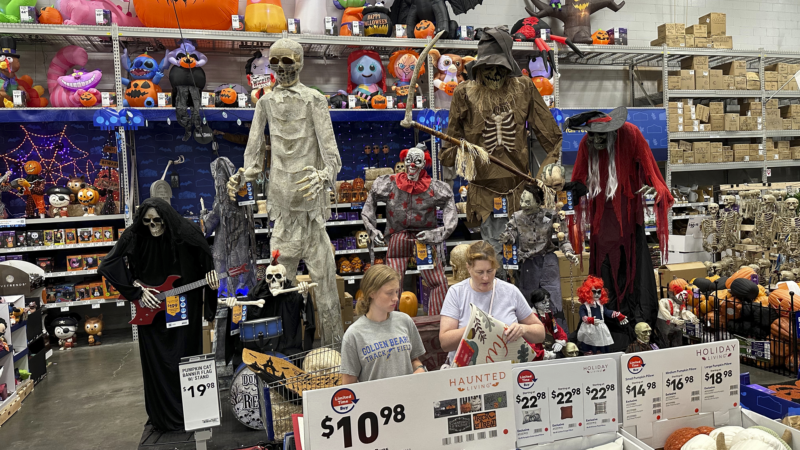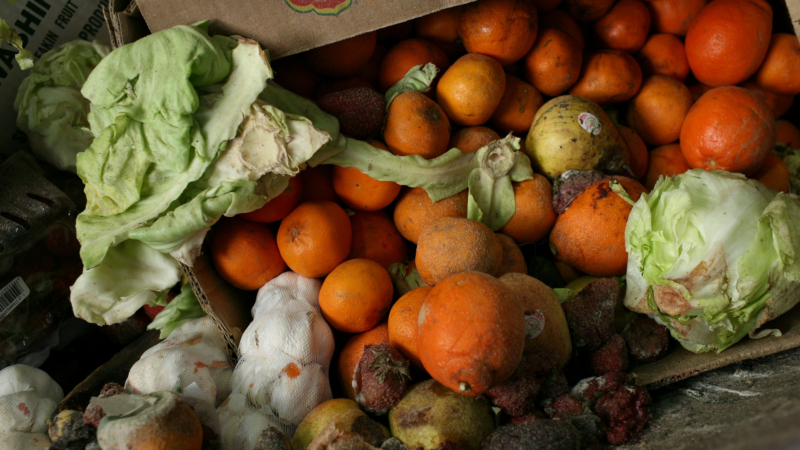It’s somehow pumpkin spice season already. Why fall vibes are here earlier than ever
Summer is weeks from being over, but ghosts, goblins and pumpkin spice lattes are here once again.
“Summerween” is that time of the year when big-box retailers start to promote all things sweater weather even though shorts and flip-flops are still in season.
It’s been a trend for a while now. But this year, fall and Halloween-related goods are appearing earlier than ever.
Home Depot was considered the first major retailer to launch Halloween merchandise with an online campaign that began in April — six months before the actual holiday. Lowe’s, Party City and Michaels all started to sell some of their spooky season items online in June, earlier than in previous years.
And on Thursday, Starbucks began serving its iconic pumpkin spice latte and apple spiced seasonal drinks in the coffee chain’s earliest rollout yet. So what’s causing the fall spell?
A Halloween comeback
Marketing experts say retailers typically seek early holiday promotions to prevent unsold inventory or to beat their competitors to the punch. They say the early launches are also a sign that consumer demands are changing, especially since COVID.
Lowe’s, Michaels and Party City all attributed growing customer demand as a reason for their early rollouts. Home Depot similarly told NPR that a big driver of their “Halfway to Halloween Sale” was early interest from Halloween superfans, adding that several items from their April sale were quickly sold out.
That’s not surprising to Peter Fader, a marketing professor at the Wharton School of the University of Pennsylvania.
“When I was in college, the idea of doing anything for Halloween would have been appalling,” he said. “But if you look at college students today, they embrace Halloween.”
According to Fader, Halloween is no longer viewed as a children’s holiday or just about trick-or-treating. Instead, it’s increasingly popular among adults, and that enthusiasm magnified after the COVID shutdowns.
In the few years before and into the start of the pandemic, Halloween spending was declining in the U.S., from $9.1 billion in 2017 to $8 billion in 2020. Fast forward to 2023, and shoppers in the U.S. spent a record $12.2 billion on Halloween goods, according to projections from the National Retail Federation.
Fader attributes some of the attitude shifts to the seasonal retailer Spirit Halloween, which has become a staple associated with fall itself. Part of the store’s popularity is how its costumes and other merchandise continue to stay culturally relevant.
“I think it really opened the door, legitimized it, and made it more than just for little kids,” he said.
Can retailers be too early with their early rollouts?
George John, a marketing professor at the University of Minnesota’s Carlson School of Management, says these early rollouts also have a better chance of being successful now — compared to 20 years ago — thanks to consumer data and online shopping.
“They now have bigger and better ways to slice and dice who’s buying what and when they buy it. And therefore, [they] have a better ability to run promotions that are more targeted,” he said. “As the ability to use data has increased, therefore the temptation to use it has increased.”
But John added that even with more sophisticated data on consumer trends, retailers can still be at risk of being too early and can diminish a sense of urgency.
“If they just stretch every darned holiday out to being a season, it just loses its meaning and it loses its intensity,” he said.
Fader also believes it’s possible for retailers to be “too early” on the fall and Halloween bandwagon. He added that dropping merchandise prematurely can hurt companies’ bottom line.
“There could be merchandising issues,” he said. “If you’re taking some stuff off the shelf and putting things on the shelf that people don’t want at that time, you’re only hurting yourself.”
As medical strike drags on in South Korea, patients are on edge
Seven months have passed since South Korean President Yoon Suk Yeol announced a plan to increase the number of doctors. Trainee doctors walked off their jobs in protest and they haven’t returned.
Torrential rains trigger mass evacuations as rivers surge in Central Europe
Torrential rains in Central Europe have forced massive evacuations in the hardest hit areas in the Czech Republic, where floods reached extreme levels on Sunday.
Creative ways communities are reducing food waste
While lots of powerful changes to reduce food waste can start at home, sometimes the scale of the problem benefits from a community-wide approach.
Not sure what to make for dinner? Here are recipes to help you eat sustainably
Finding meals that are good for you, your wallet and the environment can be difficult. We've pulled together a few recipes to make sustainable choices even easier.
Exhausted? Irritable? It could be undiagnosed iron deficiency
Around a third of women of reproductive age could have low iron. But doctors don’t routinely screen for the condition, though it can lead to anemia. Symptoms include exhaustion, headaches and more.
How do you help young Afghan refugees heal? A new program in Maine offers a way
Research shows that a toxic mix of past traumas and the stresses of resettlement puts refugee kids at significantly higher risk of long term mental health challenges. A new effort aims to mitigate those risks by supporting parents and children in refugee families.







